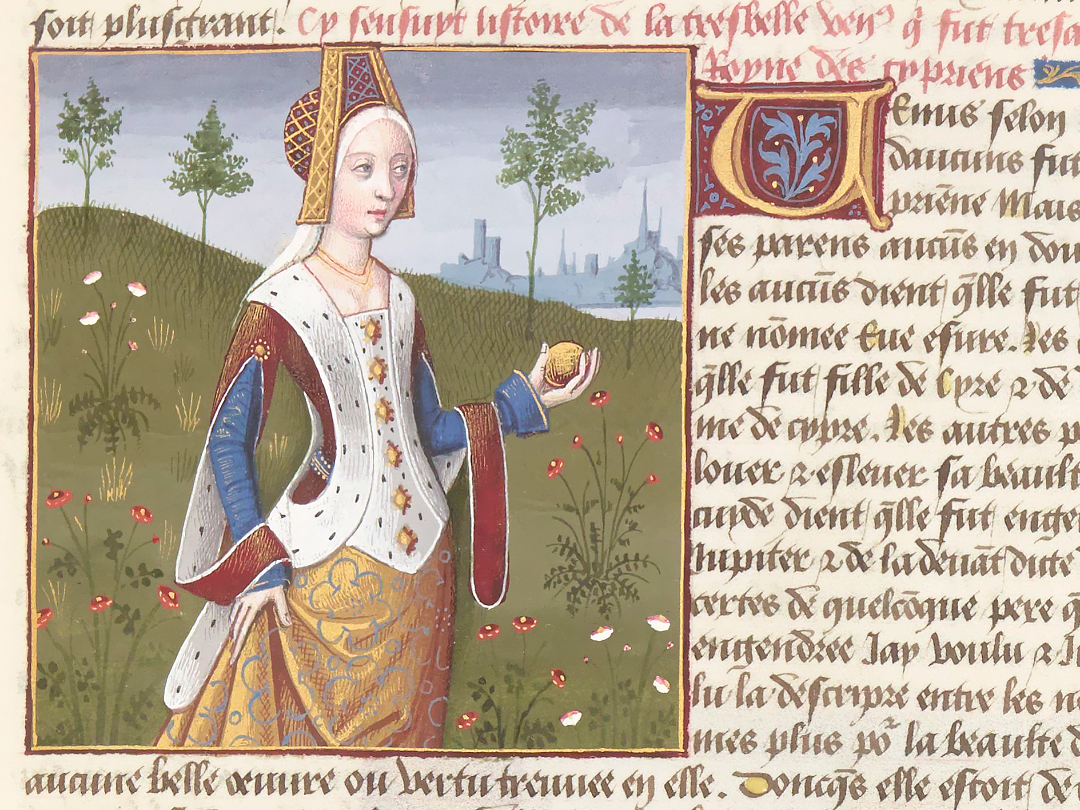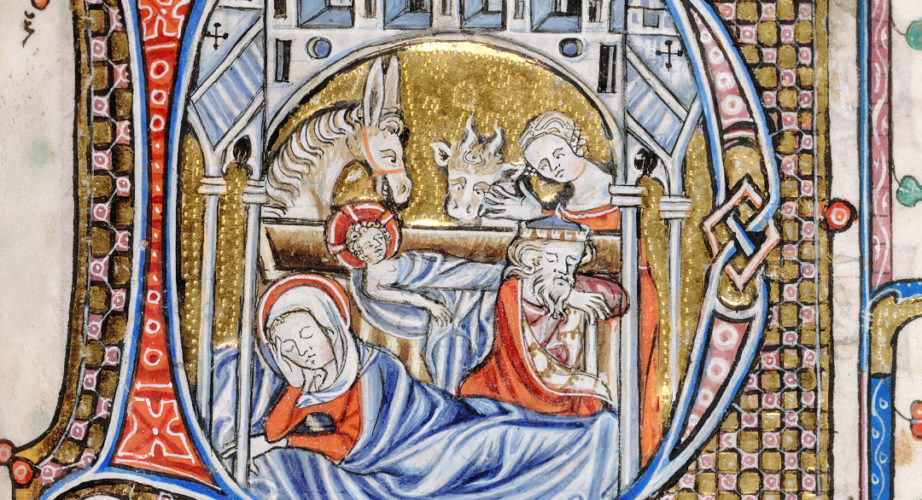Venus

We resume our weekly Women's Wednesday column with one of the most famous women of all time: Venus.
You are probably well acquainted with the mythological figure of Venus (or Aphrodite for the Greek): the goddess of beauty and love was believed to be the daughter of Jupiter, born of sea-foam by the island of Cyprus. Thanks to her popularity, Venus became one of the most beloved deities in both Greek and Roman Pantheons; in his De Mulieribus Claris, however, Boccaccio seems to have a drastically opposite opinion.
According to the author, in fact, Venus was no more than a somewhat clever, cunning, beautiful mortal woman born from Cypriot parents. Her beauty and charisma were so blinding that Venus was able to deceive countless men into believing she was an actual goddess; protected from any denigration by her new status, the woman was able to engage in fornication as much as she desired. Moreover, Boccaccio also credits Venus with what he calls an "abominable indecency": the invention of public brothels.
Pretty different from the common idea we have of the goddess, right?
“Venus”, illumination from the manuscript “De Mulieribus Claris”, decorated by Robinet Testard, ms. Français 599, f. 10r, 1488-1496, Bibliothèque nationale de France, Département des Manuscrits, Paris.
Historically and mythologically speaking, being in a powerful position (and perhaps also a…
The time has finally come for the very first Women’s Wednesday of 2021!…
Two sleepy parents and a very awake Child... in a way, this Nativity…


